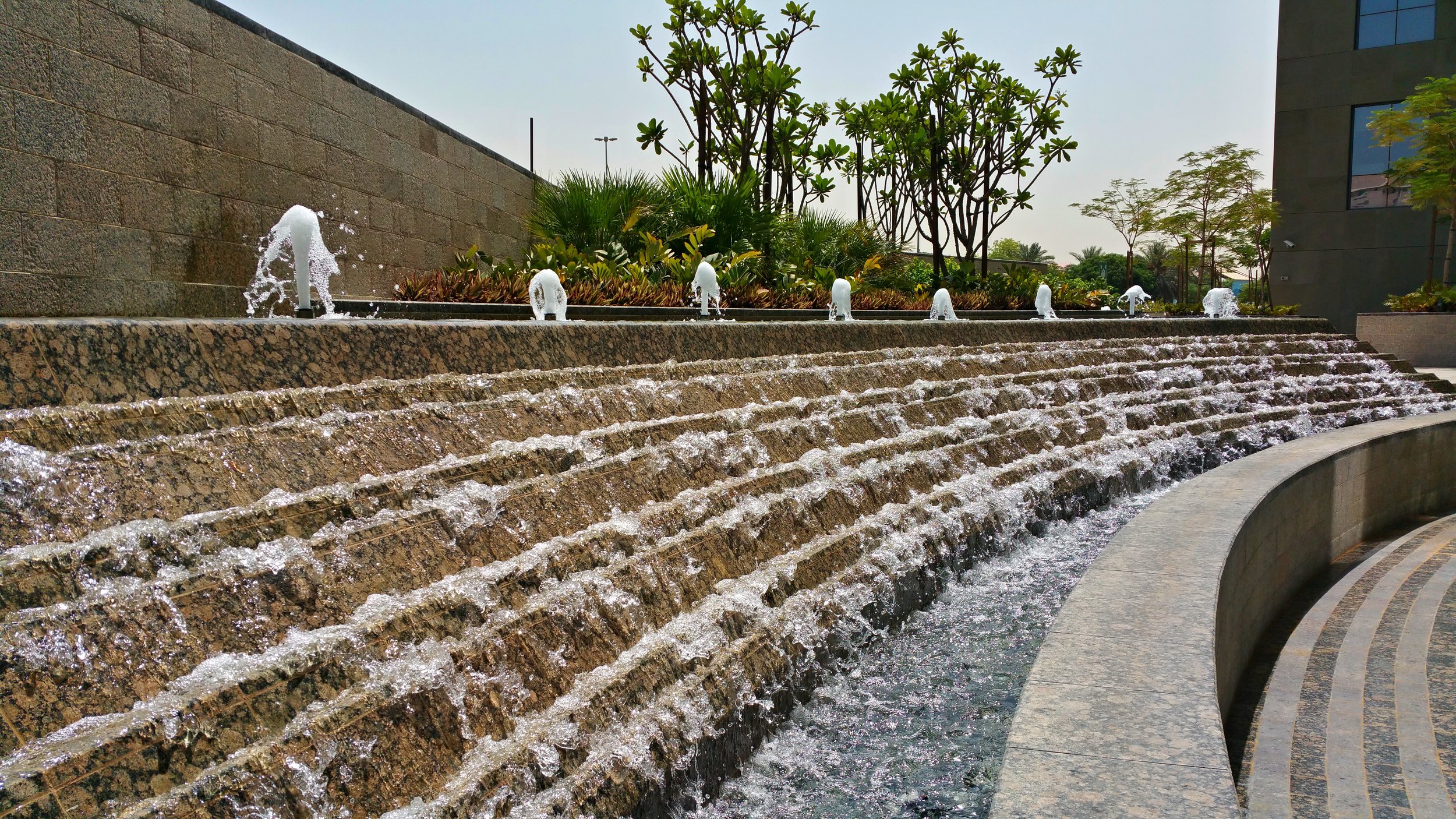
2022-07-01T11:04:19
The presence of water has been shown to reduce stress, increase feelings of tranquility and lower both heart rate and blood pressure. This is why water is a popular component in healing gardens at hospitals: Patients and their loved ones use these spaces to escape the difficulties of treatment, and it's also a fact that hospital patients whose rooms offer them a view to water in a green space exhibit quicker recovery times and shorter hospital stays compared to patients whose rooms do not offer such prospects. If you need any convincing about the joy water imparts to people of all ages, just stand by and watch what happens in interactive fountains: The children are mesmerized, and you'll get the sense that their adult companions wouldn't mind getting soaked alongside them. And the fascination continues, as seen at right, even when the weather gets chilly. Marine biologist Wallace J. Nichols has studied the effect water has on our mental health through both quantitative and qualitative research. His findings are outlined in a book in which he argues that we all have "blue mind" defined as "a mildly meditative state characterized by calm, peacefulness, unity, and a sense of general happiness and satisfaction with life in the moment." It's all triggered, he writes, when we find ourselves in or near water. This state of mind rests largely on the assumption that watching water allows our brains to relax while still operating in a form of "soft fascination." That is, we're still consciously thinking, but we aren't overwhelmed by heaps of incoming information - as we might be if we were watching a television show, say, or working on a computer.

Have a question? Ask here!
Required fields are marked *